Dr Raffaele F. Ciriello, a Senior Lecturer in Business Information Systems at the University of Sydney, claims that corporate elites have hijacked Australian universities.
Australian public universities are no longer run for education. They have been taken over by a managerial elite that prioritises profits over academic integrity. Vice-chancellors earn more than the Prime Minister, with 16 of 41 making over $1 million annually.
Meanwhile, academics face insecure work, PhD students live below the poverty line and international students bankroll the system while having no say in governance.
A broken governance system entrenches this imbalance. Of 545 university governing body positions, only 137 are elected by staff, students or graduates, while corporate executives and consultants hold 143. Decisions prioritise financial growth over research and education, turning universities into corporate fiefdoms…
Casualisation has led to rampant wage theft, with universities underpaying staff by over $400 million nationally…
Universities have become addicted to international student fees, which account for up to 40% of revenue…
Dr Ciriello’s criticisms are well-founded.
Vice-chancellor salaries in Australia are the highest in the world and dwarf other education professionals.
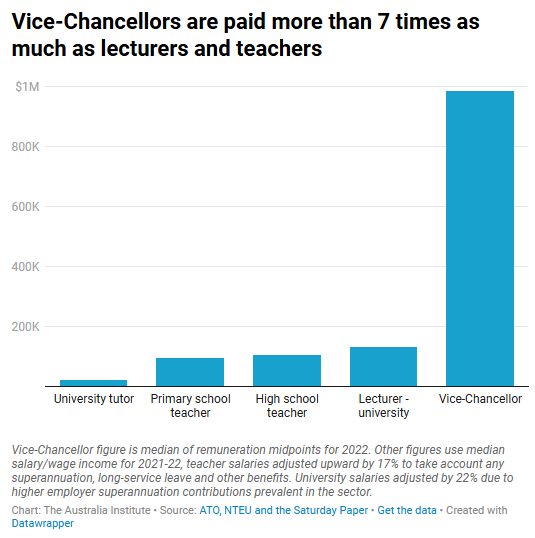
More than 300 Australian university executives earn more than state premiers.
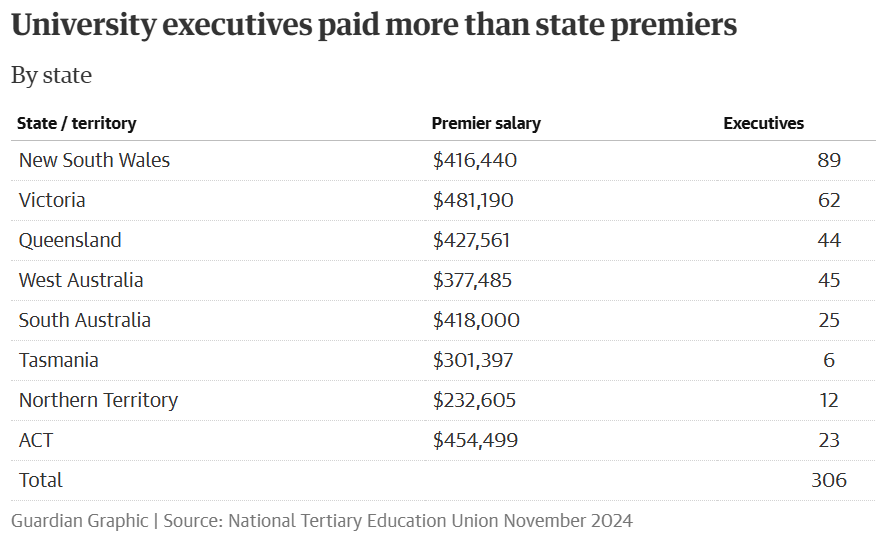
“Vice-chancellor wages are excessive and out of touch with community expectation”, said the national president of National Tertiary Education Union (NTEU), Dr Alison Barnes.
“And you can’t look at the wages in isolation. They are, I think, particularly obscene in the context of that broader crisis of governance which is the hallmark of Australian public universities at this point in time”.
According to an NTEU investigation of 545 council positions at 37 institutions, members from the Big Four accounting firms and industry groups hold up to half of the roles, with some having more finance or mining executives than current academic practitioners.
The rise of large corporate appointments on university boards and executive pay coincided with increased precarious work, wage theft, and poor governance.
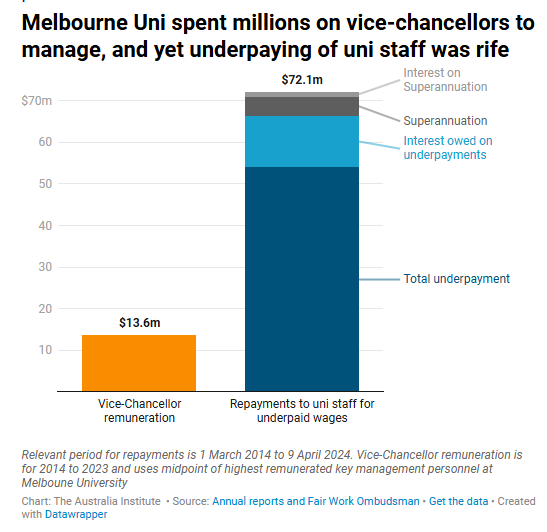
Australia’s concentration of international students was already world-beating before the pandemic, dwarfing other advanced nations:
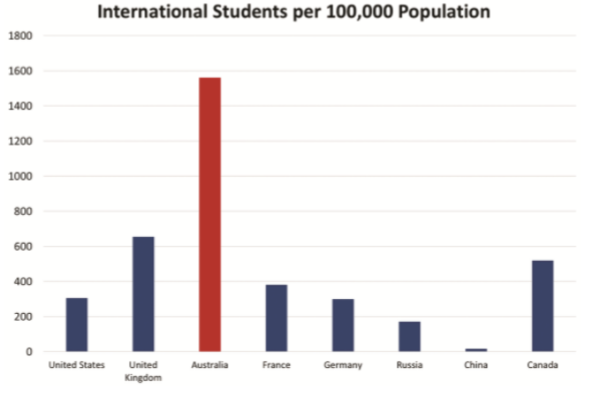
Source: Salvatore Babones (2019)
The number of international student enrolments has increased further since the pandemic, topping one million for the first time last year.
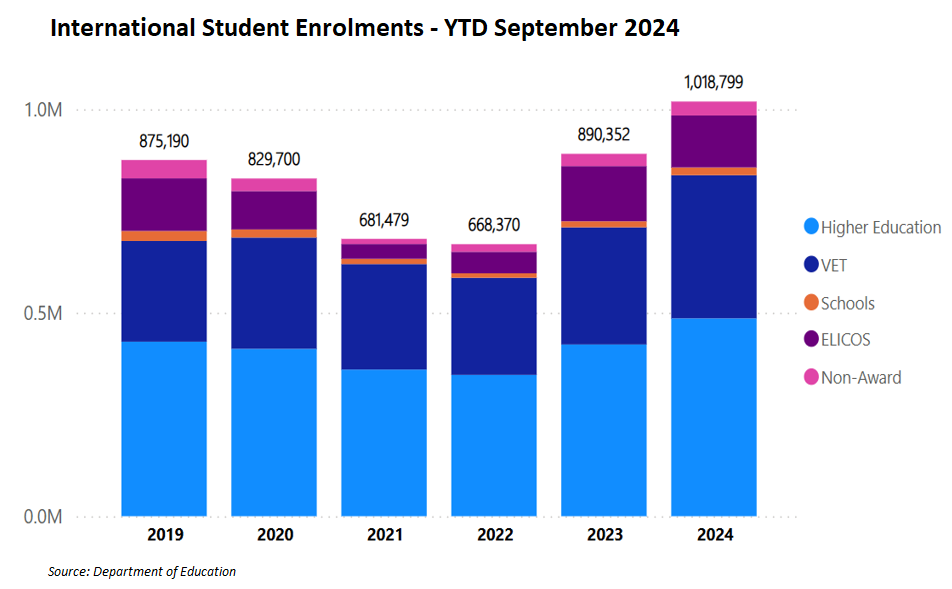
Pedagogical standards have been destroyed, with academics prohibited from failing international students because it would undermine their high-volume business model:
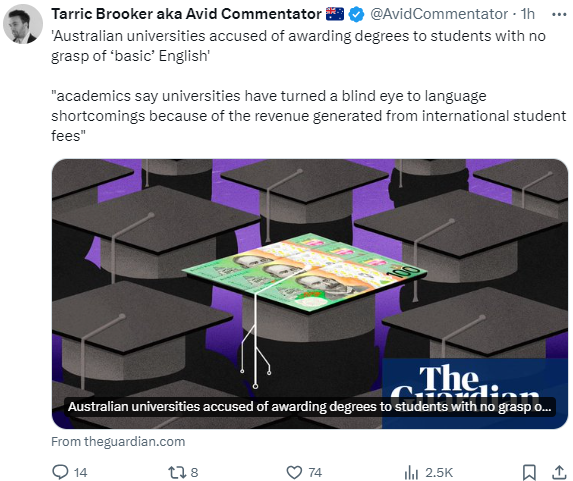
Local students have been forced to carry internationals through their courses via group assignments and cheating by international students is rife:
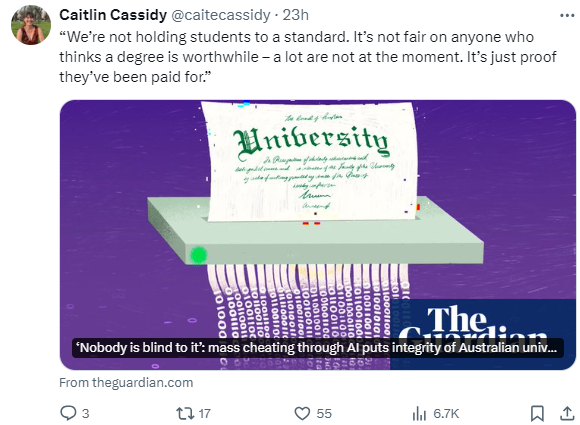
The situation became so absurd that tutorials at Australian universities were being conducted in foreign languages:
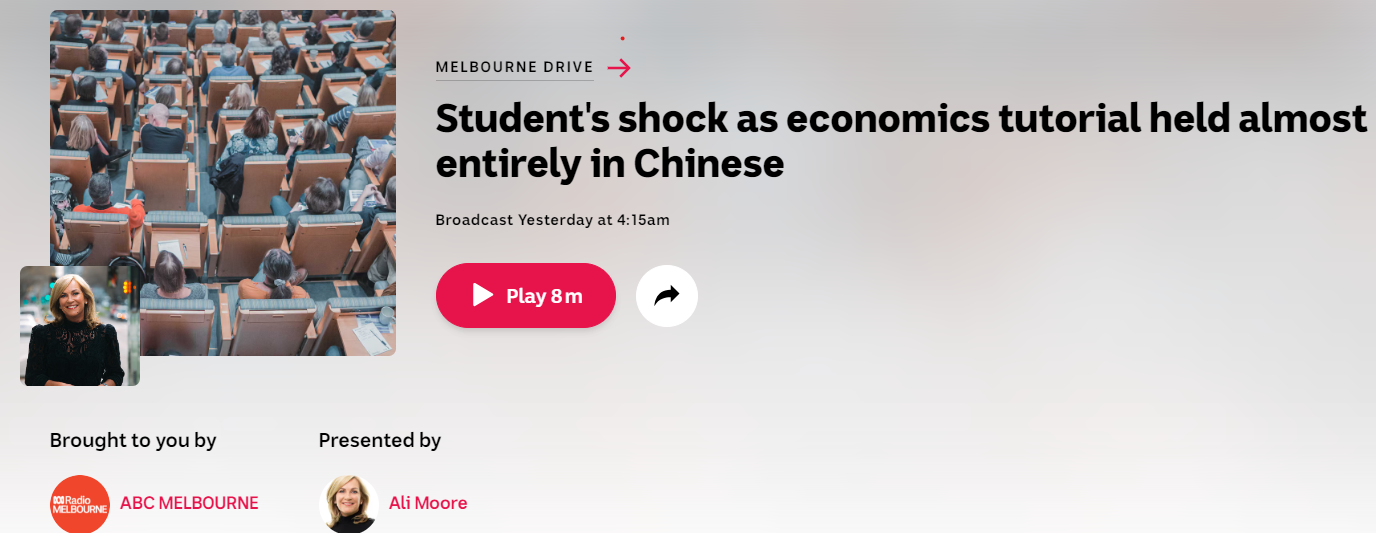
We should also acknowledge the many fake ‘ghost colleges’ set up as migration scams.
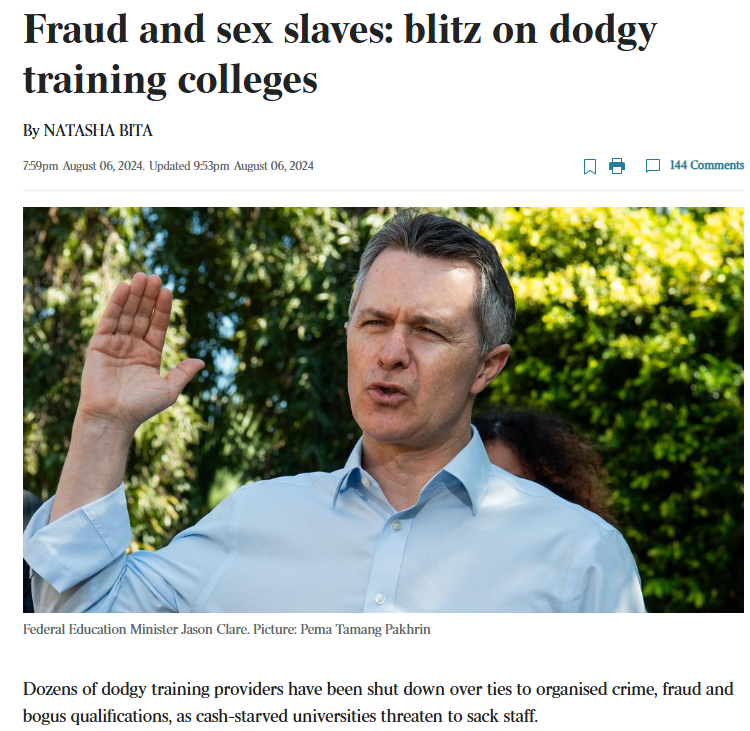
Everyone can see that vested interests have corrupted higher education in Australia.
Policymakers colluded with universities to created a system that rewards university executives with large salaries for effectively transforming their universities into low-quality, high-volume immigration mills.
- The Australian government offered generous student visa work rights and prospects for permanent residency.
- Australian institutions lowered entry and teaching standards.
The cash bonanza from the increased international student numbers was spent on research aimed at driving Australian universities up the world rankings rather than into areas that benefited Australians.
Running low-quality student visa mills was never in Australia’s interest.
Rather than lowering standards to pull more international students of questionable quality into Australia, policymakers should aim to recruit a significantly smaller pool of excellent (genuine) students.
This could be achieved with the following types of reforms:
- Significantly increasing English-language standards and requiring prospective students to complete entrance examinations before being permitted to study in Australia.
- Significantly increasing financial requirements, including requiring funds to be paid into an escrow account before arriving in Australia.
- Reducing the number of hours that international students are allowed to work and severing the direct link between study, work, and permanent residency.
- Allowing only top-of-class graduates to receive graduate visas.
- Because Australian universities are non-profit enterprises that do not pay taxes, imposing a levy on international students to ensure that Australians receive a financial return from the trade.
Universities should also be required to provide on-campus housing for international students in proportion to the number of enrolments to reduce pressures on the private rental market.
Put simply, Australia’s international education sector must aim for quality over quantity.

